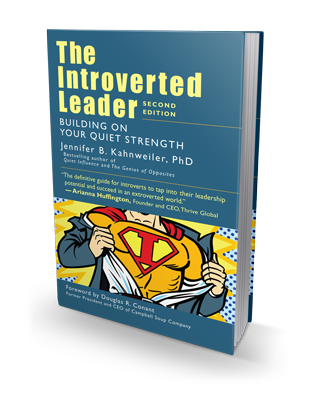In a recent lawsuit against Harvard, the NY Times reported that a group of Asian-American students claim that Asian students were rated lower than those from other groups. The traits that were cited as being ranked lower were having a “positive personality,” likeability, courage, kindness and being widely respected.
The concerns these students have about being excluded because of their temperament remind me of another group that experiences rejection because of their personality type: introverts.
An article in the Washington Post by Jonathon Zimmerman, a professor of education and history at The University of Pennsylvania connected the possible bias against Asian-American students to the discrimination introverts face in universities. “Cross-cultural studies have demonstrated that people in the East tend to emphasize traits such as humility and hard work, while Americans more often favor cheerfulness and enthusiasm.” He says, (and I agree), that he wishes universities were friendly to diverse personalities, “not just diverse races.”
I am not involved in college admissions, however, I study the world of work, and excluding people from job opportunities is a common concern of introverts I work with.
How many people have been denied entry to a company because they didn’t fit the company ideal of an outgoing, expressive person? Being a go-getter, initiating conversation and having high energy are all extroverted traits and job candidates can be marked down if they don’t exhibit these traits. It is important that our organizations pull from a variety of personality traits.
Here are the steps I outlined in The Introverted Leader; Building On Your Quiet Strength to make sure you are giving introverts a fair chance and ensure that you are setting the stage for introverted candidates and extroverted potentials to show you who they really are:
In the recruiting stage:
Make sure you are not overlooking introverts when casting your net. In internal hiring, that can happen because introverts have not been out there selling themselves. Sallie, an introverted recruiting manager who participates in promotion and hiring, is aware of the bias that often exists when less visible and vocal candidates are discussed. She makes a point of researching potential team members who are qualified but have not been especially vocal. “Being an introvert myself, I am especially sensitive to this situation. I see my role as an introvert advocate in hiring discussions.”
In the interviewing stage:
- Prep the room: Avoid blazing lights and noisy areas. Putting a desk between you and the candidate interferes with rapport, but sitting too close can be off-putting for introverts, who value personal space. Try sitting kitty-corner—it creates the right amount of intimacy. If it’s a group interview, seat the candidate at the middle of the table rather than at its head so they feel less scrutinized and can make eye contact with everyone.
- Check your bias: If you’re an introvert, you most likely will be comfortable with a slower pace, pauses, and the possible self-effacing stance of an introverted interviewee. But check yourself for confirmation bias—seeking answers that support your case and minimizing other important responses. Be clear about the skills and traits you need for the position. Consider how comfortable you feel with a person who mirrors your style, and try to diversify your pool of candidates by being open to everyone.
- Schedule adequate time: If you schedule yourself too tightly between interviews, you’ll likely feel pressured and impatient if the person doesn’t talk quickly enough. Introverted candidates are likely to pause before answering questions, and they may not fight for conversational space. The time before and after the interview will allow you to write notes, reflect on impressions, and jot down questions.
- Try these phrases: Prepare strategies to control interviews, especially with extroverted applicants. Become comfortable with gentle interruptions. For example, you might say, “That’s great, I have a few more questions I want to get in…” Or when trying to keep things moving, you can introduce your questions with “Can you briefly tell me…” or “In a couple of sentences…”
- Use paraphrasing: Reflecting back what you heard gives candidates a chance to modify or validate what they said. Introverts and extroverts will appreciate the chance to clarify their thoughts more completely.
We can never totally eliminate our bias but we can take tangible steps to face it head-on and create a workforce that represents all personalities.





